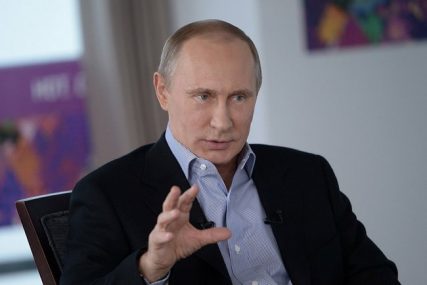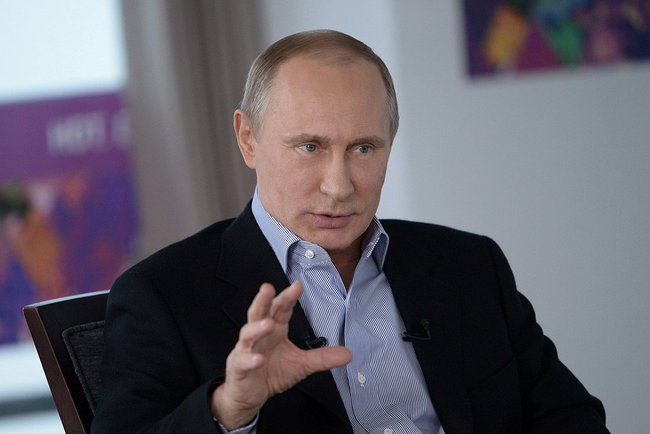 After Russian opposition leader Boris Nemtsov was murdered last week, president Vladamir Putin sent a telegram of condolence to Nemtsov’s mother. But the telegram featured a very Soviet-era feature. Putin addressed the telegram to Dina Yakovlevna Eidman. Not Nemtsov but Eidman.
After Russian opposition leader Boris Nemtsov was murdered last week, president Vladamir Putin sent a telegram of condolence to Nemtsov’s mother. But the telegram featured a very Soviet-era feature. Putin addressed the telegram to Dina Yakovlevna Eidman. Not Nemtsov but Eidman.
Eidman is a name that unearths the Jewish roots of Boris Nemtsov. According to reports, Boris Nemtsov’s mother knew the reason Putin used her maiden name was to paint Boris as “truly Jewish.”
Putin’s use of Eidman is reminiscent of an old Soviet tactic. References to enemies often included a Jewish surname in brackets. It was a simple way to portray them as outsiders. Jews were not viewed as truly Russian—religiously, ethnically, or politically. Putin’s telegram to Eidman plays to his nationalist base that continues to flame old anti-semitic embers.
It’s a subtle tactic that has largely gone unnoticed in the Western press. I missed it until I was tipped off to it by a political scientist who studies former Soviet republics. Absent independent evidence, he couldn’t say for certain why Putin referred to Eidman. But it read as something too similar to Soviet tactics to be accidental.
In some reports, Eidman is a name Boris’ mother has reportedly not used in 63 years of marriage. Documents appear to support this. But in an interview shortly before his death, Boris Nemtsov said his mother’s name was Dina Yakovlevna Eidman. Even if his mother went by Eidman (or used both names), Putin chose to send condolences to her only; no condolences were sent to Boris Nemtsov’s children.
Whatever Putin’s reasons — sincere or calculated — his telegram reveals the continued importance of anti-semitism in Russian politics. Many nationalists still see Jews as foreign and untrustworthy. Nemtsov’s death and the reaction does little to help this and, for many Jews, may make things much worse.
Perhaps Putin is trying to have it both ways. When talking of Ukranian nationalists, he paints Ukraine as dangerous for Jews, even as Jewish leaders in Ukraine publicly disagree and see Putin, not Ukraine, as the larger threat.
Putin portrays Russia as a safe place for Jews, but he knows that anti-semitism could be politically useful for him domestically among his own nationalist base that is nostalgic for Soviet days. Until recently, many Jewish groups saw Putin as rather friendly toward Russian Jews. But there has been a growing fear that a rise of nationalism would coincide with Soviet-era anti-semitism.
Putin’s remark to the mother of a murdered opposition leader may be a turning point in how Putin responds to growing nationalism within Russia. It could be a one-time nod to Soviet-era tactics. It could be insignificant, a small slight or clerical error. But it could be a turning point in how Russia responds to its treatment of Russian Jews, a return to an old strategy of painting the opposition as Jewish with all the anti-Semitic garbage that entails.
Whatever happens, those in the West need to keep any eye on Putin to see if he raising the age-old “Jewish question” that shouldn’t be a question at all in the 21st Century.
Don’t miss any more posts from the Corner of Church & State. Click the red subscribe button in the right hand column. Follow @TobinGrant on Twitter and on the Corner of Church & State Facebook page.





